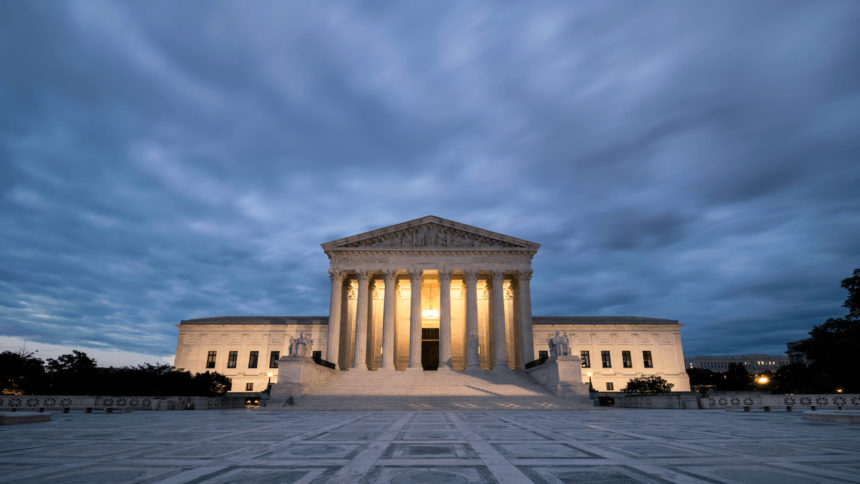
(Credit: Geoff Livingston)
The U.S. Supreme Court will hear oral arguments about two federal COVID-19 vaccine mandates on Jan. 7, the court announced Wednesday night.
That’s three days before the Department of Labor’s Occupational Safety and Health Administration has said it plans to start enforcing its vaccinate-and-testing emergency temporary standard and also three days before the court was to restart hearing oral arguments for other cases.
Dec. 15, a three-judge panel of the 6th U.S. Circuit Court of Appeals lifted a hold put on the OSHA rule by a 5th Circuit panel. The 6th Circuit decision, however, was appealed to the Supreme Court the next day by 27 Republican state attorneys general, as well as dozens of companies and organizations that oppose the mandate. The filing asked the Supreme Court to reinstate the stay, but Friday, the high court deferred a decision pending the Jan. 7 oral arguments, for which the court has allotted an hour.
The OSHA rule, announced Nov. 4, calls for employees at U.S. companies with 100 or more workers to be vaccinated by Jan. 4 or undergo regular COVID-19 testing and wear a face covering. After the 6th Circuit Court ruling, however, OSHA said it would not begin enforcing the standard’s requirements before Jan. 10 and would not cite employers for noncompliance with the standard’s testing requirements before Feb. 9.
Approximately 84 million workers are covered by the rule, OSHA said when the standard was announced.
The Supreme Court also will be hearing oral arguments about the Centers for Medicare & Medicaid Services’ emergency regulation. That rule, when announced Nov. 4, required all eligible workers at long-term care and other healthcare facilities that participate in the Medicare and Medicaid programs to be fully vaccinated by Jan. 4.
Dec. 17, the Biden administration asked the Supreme Court to reverse an injunction preventing the CMS rule from taking effect in much of the country. Some 17 million healthcare workers at more than 77,000 Medicare and Medicaid providers fall under the CMS conditions.
It was not immediately clear how quickly a Supreme Court decision might come after oral arguments.



